There are four of them.
Corpses. Each one female and young–around my age, if that.
They’re mounted on stakes at the mouth of the jungle, the evening shadows spreading inky tendrils over their ash-colored skin and bulging, distended stomachs. They almost look like dolls . . . except dolls don’t have black masks hiding their faces like funeral cowls, and they certainly don’t smell putrid, like animal carcasses left too long in the sun. The stench of rot wafts past, and my stomach lurches. I don’t like the odor of meat even under normal circumstances, but this–the stink of those bodies displayed among the tangle of roots and ferns . . . Sweat turns my palms slick, and a subtle tremor begins in my muscles. I focus on the necklace hidden under my armor, my touchstone in times like this. The mothers gave it to me some months ago to replace the one I inherited from my birth mother, Umu.
When I tug on it mentally, a replying vibration travels through me–an acknowledgment from the mothers: they’re here with me. No matter how difficult things become, the goddesses are always there, silently supporting me.
“Think we should risk takin’ them down, Deka?” Britta’s voice sounds oddly composed as it pushes against my whirling thoughts.
Just last year, she would have been in tears. She was the typical Northern farm girl then–blond, rosy-cheeked, and plump. Now, her muscles are as formidable as her curves, her skin is golden from the desert sun, and her heart is hardened against such sights. Her entire posture bristles with rage, but she remains quiet as she stares at the bodies.
I do the same, all the while steadfastly ignoring the strange heartbeat pounding in the underbrush just a few lengths from me. The person it belongs to has been there for some time now, but they’re so loud, and are making so much clamor, it’s obvious they’re not one of the jatu–the former emperor’s guards, and our sworn enemies–or any other threat, for that matter.
Perhaps they’re related to one of the corpses. It wouldn’t be the first time I’ve encountered a grieving family member at a site like this. There are many such displays all across Otera now, warnings to women: step one foot out of line and this is what will happen to you. Each one is a bitter reminder that the longer we take to eliminate the priests and the jatu the more the women of Otera suffer and the more our friends back in Hemaira–
I dismiss the thought by regarding the corpses’ distended abdomens. “No,” I finally reply. “They’re too far gone.” Usually, we take any female corpses we come across down from the stakes, but these girls’ bellies are swollen by the heat, which means they’re likely to explode if we touch them.
I turn to my other companions—Belcalis, Asha, Adwapa, and Katya. They are nearly indistinguishable among the towering tree trunks because of their leathery black armor, which we all wear during raids, as do the gryphs–the winged, striped desert cats we use as mounts. The sight is so familiar, I halfway expect Keita and the other uruni, our partners and brothers in arms, to stroll out of the jungle and join the group. They’re off in Hemaira, however, aiding our siege on the capital’s gates, which still haven’t fallen after six months of relentless attack.
“We continue on foot,” I say. “There’ll be traps now.”
Change, Ixa, I add mentally, speaking to my shape-shifting companion.
Deka, he agrees from underneath me, already shrinking to a smaller size. Normally, Ixa looks like a gigantic blue-scaled cat with horns jutting from its head like a crown, but for missions like these, he prefers to take the form of a small blue bird—a nightflyer.
He’s already sprouting wings when I climb off him.
As he flits into the silvery branches of a broad-leafed amarul tree, a shout rings out across the clearing: “Murderers!”
Our mysterious watcher shuffles from the shadows, her face covered by a plain white mask, the color of mourning. To my surprise, she’s a Northerner–pale pink skin and hair so white, it nearly gleams in the evening gloom. Every step she takes, aided by a roughly hewn wooden cane, is heavy, labored–she’s obviously of an advanced age, perhaps even in her sixtieth year or so. Add to that her plump, compact form and she could be any number of women from Irfut, the village of my birth.
“You did this,” she says, angrily shaking her cane at me. “This is your fault, Nuru!”
“You know who I am?” I’m so taken aback that she recognizes me as the Nuru–the one full-blooded daughter created by the mothers to free deathshrieks and alaki from the tyranny of the jatu–I forget my other concerns.
No one ever guesses my identity when I’m in my battle form, which is what I call the transformation my body undergoes whenever I’m primed for combat. Before, only my face changed: my skin mottled, my cheeks sharpened, and my eyes went black from rim to rim. Now, my entire body becomes rawboned and skeletal and my nails sharpen to claws. I could almost be mistaken for a deathshriek, except that deathshrieks are giants, their withered, humanlike bodies three times the size of a normal man, and that isn’t even including their claws, full butcher knives tipping each finger.
“Everyone knows!” the woman rages. “Deka of Irfut. The one who looks like a deathshriek as she enters battle but is human-sized. The cursed daughter of the cursed goddesses.”
My teeth grit. “Do not speak ill of my mothers.” She can say what she wishes of me, but the Gilded Ones have already endured enough slander to last lifetimes.
In Irfut, the priests told us that the goddesses were actually ancient demons who’d ravaged Otera, slaughtering entire cities and eating children. We alaki were impure because we were their daughters: we carried their golden blood, their strength, speed, and a portion of their longevity. They said the only way to earn purity–humanity—was to help the empire fight against deathshrieks, monstrous creatures drawn by our blood.
They never mentioned, of course, that deathshrieks were actually alaki, resurrected by the Gilded Ones after death in terrifying forms so that we could fight the jatu-led human forces who wanted to drive the goddesses’ line to extinction.
“Then who else is to blame for this, for my daughter–” The woman points at the leftmost corpse, and nausea twists my gut.
The corpse is markedly curvier than the others, its hair looser in texture. A tiny cleft embedded in its chin. In another life, it could’ve been me. Not so long ago, my curls were looser and my eyes lighter, and I too had a cleft chin. Then I moved to the Southern provinces and discarded the features I’d inherited from the man I once called Father—the gray eyes, the lightly curled hair, the chin. Now, my eyes are dark, my hair is tightly coiled, and my chin is unremarkable. All that remains of the girl who was Deka of Irfut is my short stature and Northern accent, although that is now tinged with a distinctly Southern flair.
This is what it means to be the Nuru, the only full-blooded daughter of the goddesses: I can be whoever I choose.
The woman shudders with grief, tears streaming from her eyes. “My poor child. She never did anything, never once disobeyed the Wisdoms. But then you lot came, with your lies of freedom and another life for women. All she did was utter your name, speak a little of the Gilded Ones, and the priests came for her. They took her. She wasn’t even an alaki; her purity had already been proven by the Ritual. But they said she was wayward. That she would lead others into corruption. So they took her, tried to take me–”
She points again to the bloated corpse creaking in the night breeze. “Is this the freedom you promised us? Where are the goddesses you said would defend Oteran women? Where are they?”
Her pain is so great, I feel the justifications slipping from my lips. “They’re sleeping, gathering their strength, but once they do–”
“What does it matter what they do?” The woman surges closer, grief having pushed her past all semblance of fear. “Before, there were rules. We knew how to live. How to survive. Now, there is nothing. I have nothing because of you. I am nothing because of you.”
She falls to the ground at her daughter’s feet, sobbing uncontrollably. “My girl, oh, my beloved girl.”
***
Read the full excerpt on Penguin Random House
Buy The Gilded Ones #2: The Merciless Ones: Amazon
Excerpt from THE GILDED ONES #2: THE MERCILESS ONES by Namina Forna, published by Delacorte Press, an imprint of Random House Children’s Books, a division of Penguin Random House LLC, New York. Copyright © 2022 by Namina Forna.


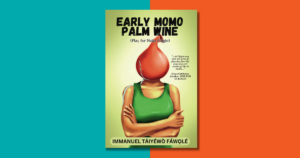
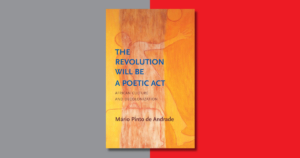
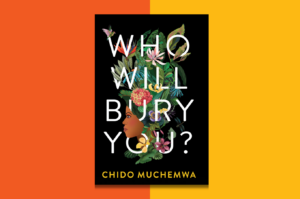
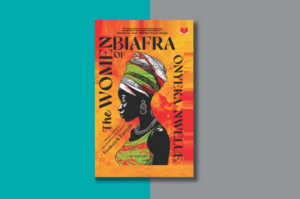
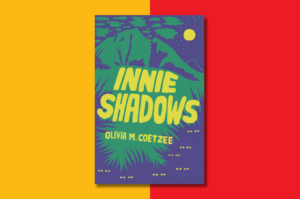
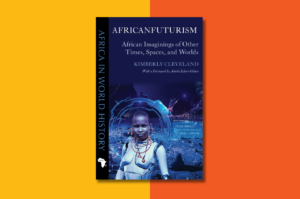

COMMENTS -
Reader Interactions